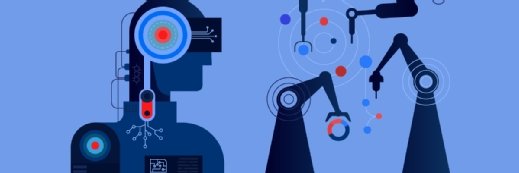
Coronavirus outbreak will speed up enterprise automation
Forrester calls for enterprises to automate with empathy as they deploy an increasing range of intelligent technologies to reduce their dependence on human labour
When employees at a multinational conglomerate in Asia started working from home at the peak of the Covid-19 pandemic, their IT team was glad that the company had invested in automation tools several years ago.
That was because without tools such as Windows Intune, it would have been difficult for the IT team to ascertain the security posture of employee laptops that were being used remotely, as well as automatically update the machines with the latest security patches.
While companies that had invested in automation are now reaping the benefits of doing so, there are others that are still trying cope with the IT and security demands of a remote workforce with little automation.
According to Forrester, the Covid-19 crisis, like other global shocks before it, will accelerate automation plans.
“In the aftermath of recessions between 1970 and 1982, it took two to six months for unemployment to begin to recover,” the firm said in a research note published in May 2020. “But in the wake of the three recessions between 1991 and 2009, this process took 17 to 23 months.
“These jobless recoveries occurred predominantly in middle-skill, routine jobs due to increased effectiveness of and investments in automation technology. The aftermath of Covid-19 will be no different.”
Some organisations are already using the opportunity to test their automation technology, even as the pandemic rages on across the globe.
In Singapore, the Infocomm Media Development Authority, local telco M1, and the Maritime Port Authority, recently announced plans to test the use of 5G-connected drones for port surveillance.
Elsewhere in Asia, investments in drone-based delivery by Alibaba, and in robotic telemedicine by China’s Youibot, have also demonstrated viability for larger-scale deployment.
“The coronavirus pandemic is seeing national governments and institutions commit heavily to investments in artificial intelligence (AI)-centric technologies such as synthetic biology, robotics and drones. The impact of these investments will continue to show up long after the coronavirus has receded,” Forrester said.
In many corporate boardrooms, automation is also expected to be elevated to a higher priority to hedge against similar events, enabling organisations to remove some risk of depending on humans and to adapt without intervention to demand fluctuations.
That could mean employing more “digital workers” – essentially bots that learn to prioritise business and IT processes, allowing them to operate in roles such as accounts payable or IT operations with little or no supervision.
Forrester said the value of a digital workforce is as compelling for large-scale risk mitigation as it is for cost – digital labour does not fall ill and can perform repeatable tasks from anywhere with equal efficiency.
Read more about automation in APAC
- Experts at a McKinsey event in Sydney called for Australian enterprises to automate while acknowledging the need to reskill workers whose jobs could be displaced.
- ServiceNow’s newly minted managing director in Asia talks up the company’s sweet spots and traction in the region, and what it’s doing to abstract away workflow complexities for mobile workers.
- Singapore’s AntWorks hopes to lower the cost of deploying and maintaining robotic process automation technology with a platform that combines machine learning and data processing capabilities.
- French energy management and automation firm Schneider Electric has nearly halved material wastage by applying smart manufacturing technologies at its Indonesia plant.
“In some circumstances, humans are riskier than robots – automobile manufacturing plants are shutting down not because of issues with robotic manufacturing lines but out of concern for the humans who work alongside them,” said Forrester.
“However, firms will struggle with technical, structural, cultural and business process change as they retool to make broader use of a digital workforce.”
Amid this backdrop, the research firm called for organisations to automate with empathy when deploying intelligent technologies that increasingly encroach on the cognitive abilities of human labour and interaction.
“Many of these, such as machine learning, are ‘fuzzy’ and can inherit biases in training data or challenge the superiority of humans in the human-machine collaboration equation. Workers and leaders will require new skills, behaviours, and mindsets,” it said.
“The spectre of a jobless recovery is real, and the human impact of the crisis on the workforce will continue into recovery. Avoid the temptation to automate roughshod; instead, approach automation with empathy and trust, and invest in increasing your firm’s robotics quotient.”










